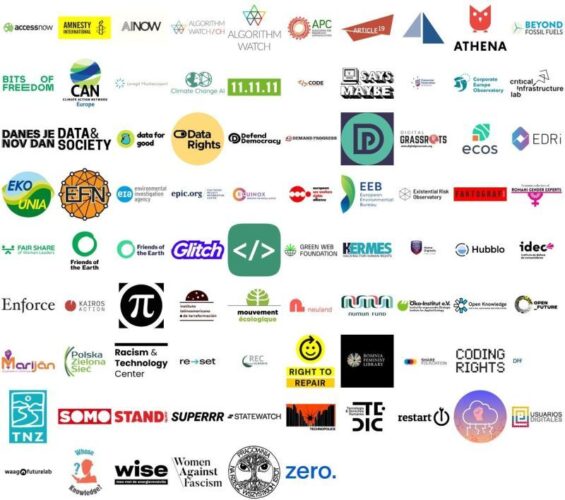Within Bounds: Limiting AI’s environmental impact
Coding Rights, together with more than 130 organisations worldwide, signed a statement outlining demands to mitigate the environmental impact of AI development. If you share our concerns and demands that AI systems be made compatible with our planetary boundaries, and are a civil society organization, can you can sign on here.
INTRODUCTION
We are at a critical threshold in our computational futures. Investment in artificial intelligence (AI) is booming, and its application across society is accelerating at an unprecedented scale. Meanwhile in 2024, the 1.5C global warming limit was surpassed across the entire year, and the boundaries of several life-supporting planetary systems have been exceeded. Devastating heat waves, storms, fires and floods remind us of how human activity impacts all life on this planet.
Scientific consensus is clear: fossil fuels must be phased out to reduce the greenhouse gas emissions heating the planet. Yet there is increasing evidence of AI systems driving up emissions and locking in reliance on fossil fuels, while exhausting critical resources like water, land and raw materials, intensifying environmental harms across the technology supply chain, and accelerating the expansion of resource-intensive computational infrastructure beyond sustainable limits.
However, these facts only occupy a marginal position in governance debates. The tech sector continues to operate as if there were no planetary limits. Tech leaders and governments justify further investment in AI systems by emphasising it as a tool for sustainability. However, AI can never be a “climate solution” if it runs on fossil fuels and is used to extract oil and gas.
To meet the challenge of climate change, environmental degradation, pollution and biodiversity loss, and its attendant injustices, we urge policymakers, industry leaders and all stakeholders to acknowledge the true environmental costs of AI, to phase out fossil fuels throughout the technology supply chain, to reject false solutions, and to dedicate all necessary means to bring AI systems in line with planetary boundaries. Meeting these demands is an essential step to ensure that AI is not driving further planetary degradation and could instead support a sustainable and equitable transition.
Read the full statement here.
Signatories

